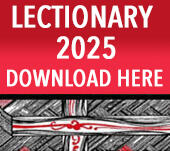Any change in this church’s practice of marriage might require changes to our Constitution.
This is one of the main findings of the Commission on Doctrine and Theological Questions, which has just reported to General Synod Standing Committee.
The nine-member Commission was formed across the three tikanga to explore a theological rationale for same-gender marriage and/or blessings.
“The rationale can be made,” the Commission says in the executive summary to its 38-page report. “It can be argued that (such a rationale) is a faithful response to scripture and has theological merit.
“But the rationale can also be scripturally and theologically rebutted,” the Commission adds.
“This can be done by a critique of the actual argument in favour of the rationale and by the weight of tradition in the form of our Constitution, Formularies, and received reading of scripture.
“How we decide between that rationale and the rebuttal is up to the whole church, but the discussion must go significantly deeper than simply asserting that we have always spoken about ‘man and woman’.
“The debate involves deep arguments regarding the nature of our humanity before God and the nature of the Gospel in relation to sexuality and marriage.”
The Commission states clearly that the Church should stand for the inclusion of those who are marginalized, even while the shape of that inclusion is debated.
Noting that consensus on same-gender issues is unlikely at present , the Commission wonders whether “we might be permissive in some way and await the test of time and fruits that are brought forth by covenanted same-gender relationships.
“None of the above forecloses on the need for ongoing discussion. Indeed, the heartfelt contribution from the Diocese of Polynesia expressed the desire for further Talanoa” (talking honestly).
Pointing out that marriage is the church’s way of recognizing God’s blessing in a couple’s life, the Commission says: “To invent another form of disciplined and covenanted relationship is a difficult matter for this church. A same-gender marriage would clearly be deemed as marriage in every sense.
“The whole point of the traditional argument is, however, that it is not the same as marriage as this Church has practiced it, and cannot be the same, because it is same-gendered.
“This gives rise to the question whether a same-gender blessing might instead be sanctioned as a new rite.
“We recognize that changes in practice could be contrary to the Constitution and this would need to be addressed through due processes.
“If this church believes that a change in practice is required by the revelation of God and the movement of the Spirit, it will seek ways to accomplish that change.”
The Commission's full report can be downloaded below:
The Commission on Doctrine and Theological Questions comprises:
The Rev Dr Andrew Burgess, Dr Moeawa Callaghan, the Most Rev Dr Winston Halapua, the Rt Rev Dr Helen-Ann Hartley, the Rev Dr Eseta Mateiviti-Tulavu, the Rt Rev Te Kito Pikaahu, the Rev Thomas Poata, the Rev Sione Uluilakepa, the Rt Rev Jim White (chair).

















Comments
George Armstrong
Wednesday 09 April 2014 3:37:43 pm
Log in or create a user account to comment.